Seven faculty members who have shown dedication to developing cultural and ethnic diversity at U-M have received the 2013 Harold R. Johnson Diversity Service Award from the Office of the Provost and Executive Vice President for Academic Affairs.
The recipients are Letha Chadiha, School of Social Work; Dr. Timothy R.B. Johnson, U-M Health System; Leslie Hollingsworth, School of Social Work; Paul Mohai, School of Natural Resources and Environment; John Vandermeer, LSA; Barbara A. Israel, School of Public Health; and John Matlock, Office of Academic Multicultural Initiatives.
“The nominations we received were simply outstanding and prove that our faculty continues to think creatively about how to elevate Michigan’s role as a national model for diversity in higher education, ” says Lester Monts, senior vice provost for academic affairs. “This year’s recipients truly epitomize the values of fairness, tolerance, and appreciation for the viewpoints and lifestyles of others. We appreciate their efforts to promote diversity and create a rich environment for our students, faculty and staff.”
Established in 1996, the award is given in honor of Harold Johnson, dean emeritus of the School of Social Work. The award provides $5,000 to recipients to further research and scholarship opportunities.
Letha Chadiha
Chadiha, professor of Social Work and co-director of the Community Liaison Core in the Michigan Center on Urban African American Aging Research, was recognized for her career-long commitment to diversity as part of the university’s educational mission.
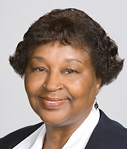
Chadiha
In 2008, the Gerontological Society of America’s task force on Minority Issues in Gerontology presented her its Outstanding Mentorship Award. Her most recent endeavor to demonstrate this commitment is through the National Institute of General Medicine Sciences Social Work/Nursing Bridges to the Doctoral Program. It recruits, supports and mentors underrepresented masters level social work and nursing students and prepares them for doctorate programs.
Chadiha also works with junior faculty and graduate students of color to enhance their careers.
“Her willingness to share her experience and guidance with students, and particularly those who are underrepresented in higher education and higher education research is one of her many contributions. Her research in African-American communities has contributed to changes in the ways in which we view community-based care for the elderly,” wrote Laura Lein, School of Social Work dean and Katherine Reebel Collegiate Professor of Social Work, and professor of anthropology, LSA.
Dr. Timothy R.B. Johnson
Johnson, Arthur F. Thurnau Professor, Bates Professor of the Diseases of Women and Children and chair of the Department of Obstetrics and Gynecology, was recognized for his commitment to diversity and leadership at the local, national and global levels. His effectiveness as a mentor also was cited.
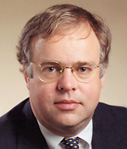
Johnson
Johnson initiated the Women’s Health Program at UMHS, now designated a National Center of Excellence in Women’s Health. His leadership and advocacy on behalf of women and children led to the Department of Obstetrics and Gynecology and the Women’s Health Program to be recognized for the first time and consistently thereafter in the top tier of academic, clinical and research programs as recognized by the National Institutes of Health and U.S. News & World Report rankings.
“Dr. Johnson is a tireless advocate for diversity and inclusion, educational and health equity, women’s health, global health and endeavors that demonstrate intellectual excellence and commitment to cultural diversity and service, teaching, and scholarship across gender, race, ethnicity, nationality and class,” wrote Dr. Carmen R. Green, associate vice president for health equity, UMHS, and professor of health management and policy, anesthesiology and obstetrics and gynecology.
Leslie Hollingsworth
Hollingsworth, associate professor of social work, was recognized for being a proven leader at incorporating diversity and diversity issues into her own work, the School of Social Work classroom, and the greater university and Ann Arbor communities. Her work in the area of adoption, and specifically African-American adoptive parents, as well as transracial adoption and transnational adoption, is called a hallmark of her diversity work.
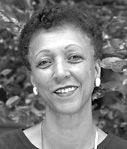
Hollingsworth
“She has examined both the strengths and the issues associated with these adoptions from both quantitative and substantive aspects. Her work in these areas has been called ‘prominent,’ and ‘classic.’ That she has gained a national reputation for her leadership in these areas speaks volumes about her commitment to the communities with which she works and the care that she takes with her work,” wrote Lein.
Hollingsworth’s recent work to co-chair a faculty search committee examining the best applicants led to a diverse SSW hiring cohort. Of four hires, two were women, one a Hispanic male, and one an African-American male, exemplifying her commitment to a diverse faculty.
Paul Mohai
Mohai, professor of natural resources, SNRE, was cited for being a leader in the environmental justice field of study over a 21-year career. The Sierra Club and Natural Resources Defense Council, and other organizations working to achieve environmental justice, cite the importance of Mohai’s work.
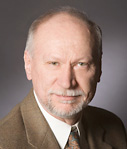
Mohai
A hallmark of Mohai’s scholarship is a rigorous data-driven approach to documenting disproportionate exposure among minority and low-income populations across different types of pollution. Mohai was honored in 2012 with the Bunyan Bryant Environmental Justice Award from the Michigan Chapter of the Sierra Club. At SNRE, Mohai helped found the Environmental Justice Program and helped to establish the Environmental Justice Field of Study within the master’s degree curriculum.
“Countless Americans enjoy better lives for the protective policies that have been implemented as a direct result of Professor Mohai’s work. In addition, his contributions in the classroom and his leadership within our Environmental Justice Program ensure that the next generation of environmental justice advocates are well-equipped to stay the path that Professor Mohai has forged,” wrote Marie Lynn Miranda, SNRE dean and professor.
John Vandermeer
Vandermeer, Asa Gray Distinguished University Professor of Ecology and Evolutionary Biology, is known as the EEB member most sensitive to problems of racial and gender inequality, most aware of the social science data that exposes the causes of those problems, and most active in seeking solutions.
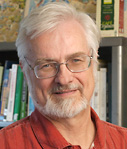
Vandermeer
As a mentor, Vandermeer has worked hard to recruit and support students from nontraditional and disadvantaged backgrounds, including underrepresented minorities from the U.S., disadvantaged students from Central America, and women of all backgrounds. He has been instrumental in initiating several programs that have made or are making important improvements in EEB’s recruitment and retention of nontraditional students.
Several years ago, he and Ivette Perfecto of SNRE received a grant to develop a recruiting program for undergraduates from institutions with high populations of underrepresented minorities. The program has been successful in recruiting students to EEB’s Frontiers Masters Program.
“John is absolutely committed to social justice and is willing to make the effort that’s needed to effect change, both at an individual level and an institutional level,” wrote Deborah E. Goldberg, EEB chair and Elzada U. Clover Collegiate Professor of Ecology and Evolutionary Biology.
Barbara A. Israel
Many of the contributions Israel has made to SPH stem from her leadership in the area of Community-Based Participatory Research (CBPR). It allows academics to conduct research with, rather than on, communities of color interested in eliminating health problems.
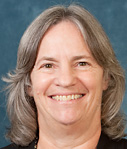
Israel
Israel, a professor of health behavior and health education, is the prime mover of the Detroit Community-Academic Urban Research Center (URC), a CBPR partnership that includes representatives of both the African American and Latino communities in Detroit. Colleagues across the nation have called the URC the gold standard for such partnerships.
“In creating and nurturing the URC for the past 18 years, Dr. Israel has created a collaborative partnership that extends throughout the School of Public Health and to other units within the University of Michigan; to community organizations in Detroit, the Henry Ford Health System, and the Detroit Department of Health and Wellness Promotion. Dr. Israel has mentored, guided and counseled scores of faculty, and she has done much to improve the health of diverse communities,” wrote Martin Philbert, SPH dean and professor of toxicology.
John Matlock
Matlock has served for 25 years as the executive director of the Office of Academic Multicultural Initiatives and associate vice provost in the Office of the Provost and Executive Vice President for Academic Affairs. Under his direction, OAMI has administered activities ranging from diversity research and multicultural programming to academic success and enrichment activities.
Working year-round with an advisory committee, Matlock coordinates the largest commemoration of Martin Luther King, Jr. programs in the country with some 90 campuswide activities.
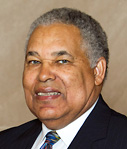
Matlock
Through his leadership, the office has secured more than $1.5 million in research and program funding. Matlock has written proposals to the Michigan Department of Education to fund two top-rated programs that benefit student leadership development. They are the Pathways to Student Success and Excellence pilot program to provide first-year minority students with skills to help them take responsibility for their academic success, and M-Ties. This program with Washtenaw Community College prepares community college students to transfer and perform well at U-M.
“Under his leadership, OAMI has served as a national model for using diverse groups of staff, faculty and students to advance campus diversity initiatives,” Monts said.

